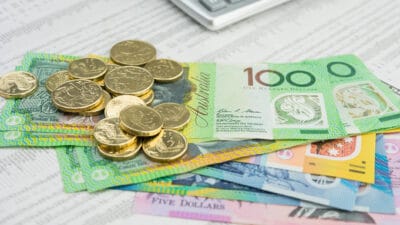The BHP Group Ltd (ASX: BHP) share price went up by around 5% in August. That handily outperformed the return of the S&P/ASX 200 Index (ASX: XJO), which only rose by 0.6%.
As the biggest business on the ASX, any movement of the BHP share price can have an outsized impact on the ASX 200 itself.
In the middle of the month, BHP announced its result for the 12 months to 30 June 2022. So, let's start by looking at what BHP reported.
FY22 earnings recap
BHP revealed two sets of numbers.
The continuing operations numbers exclude the divested BHP petroleum business. That is, they show the performance of the businesses that the company's still holding onto.
Profit from continuing operations grew 34% to US$34.1 billion and underlying attributable profitable went up 26% to US$21.3 billion. Net operating cash flow increased by 13% to US$29.3 billion. Continuing operations' underlying earnings per share (EPS) went up 25% to US$4.21.
The company also improved its net debt position by 92% to US$333 million.
BHP boasted that the strong result was due to its "safe and reliable operations, project delivery and capital discipline" which allowed it to capture the value of strong commodity prices. Certainly, resource prices can be a key driver of the BHP share price.
Dividend
Investors may have liked to see that BHP declared a big dividend. Indeed, it could have been the dividend that encouraged investors to buy up BHP shares before they went ex-dividend on 1 September 2022. Between the end of July and now, the BHP share price has fallen by 5%.
The BHP board decided to pay a final dividend of US$1.75 per share, or US$8.9 billion. That brought the full year dividend to US$3.25 per share – an increase of 8% – and represented a payout ratio of around 77%.
That final dividend of US$1.75 per share is currently equivalent to a payment of A$2.57 per share. This translates into a grossed-up dividend yield of 10% at the current BHP share price, or 7% if excluding the franking credits.
What do experts think of the BHP share price?
Macquarie has an outperform rating on BHP but recently cut its price target after reducing its profit expectations over the next few years because of the lower demand and price for copper. The price target is $40, which implies a rise of around 10%.
UBS is less optimistic. It has a price target of $35.50, which represents a small drop in the BHP share price. The broker thinks that lower commodity prices will impact BHP's profit over the next couple of years.
Morgans rates it as add with a price target of $48.40, implying a possible rise of more than 30%. The broker is confident based on the outlook for the potash project Jansen, and the strong earnings from coal.








